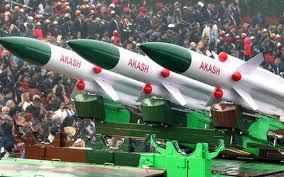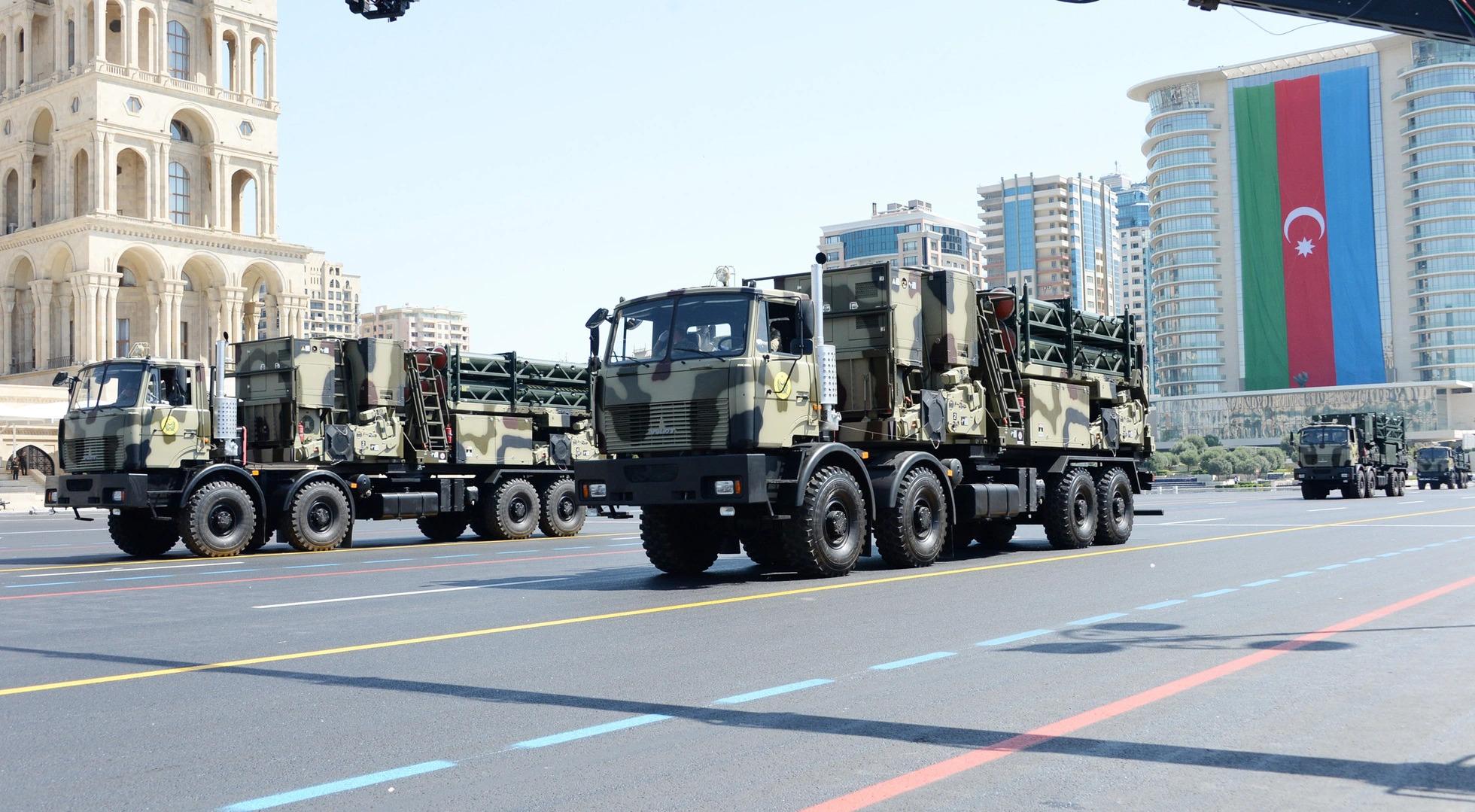Azerbaijani-Armenian peace process in the shadow of Yerevan's rearmament Yerevan is intensively procuring French & Indian weapons
Baku and Yerevan have a tumultuous history marked by a minimum of two bloody wars within the confines of 1990-2020, with the latter occupying nearly 20 per cent of Azerbaijani lands in the 1990-1994 war, and the first reclaiming its territorial integrity in its entirety after the Second Karabakh War of 2020 along with a day-long anti-terror operation on September 8-9, 2023.
Despite Azerbaijan’s military triumph, a lasting peace deal between the two nations remains elusive, leading to ongoing tensions and mutual accusations. Since the November 10, 2020, Russia-brokered truce, the parties have kept blaming each other for torpedoing efforts and disrupting initiatives designed to secure stable regional peace.
Baku’s day-long anti-terror operation in parts of Karabakh in September 2023 fundamentally altered the situation both on the ground and in the wider region, presenting Armenia with a fait accompli. Yerevan is now facing a hard choice – either a peace deal to restore long-sought calm in the interstate relations with shared but undelimitated and demarcated borders, exceeding 1,000 km.
In an abrupt shift, Armenia, instigated by foreign patrons, has recently started a fresh re-armament race to procure weapons and missiles from India and France. Now official Baku and experts keep asking Armenia's raison d'être behind the move, wondering if Armenia is preparing for revenge. The lack of a comprehensive agreement raises concerns about the sustainability of the current ceasefire and the potential for renewed hostilities.
Armenia's rearmament race
What strategic goals Armenia is pursuing to achieve through its recent ongoing procurement of weapons and missiles remain to be seen. Beyond any doubt, the recent wars have had significant implications for the regional military balance. Both Armenia and Azerbaijan are naturally seeking to beef up their defence capabilities in the aftermath of the war. However, Armenia’s procurement of offensive weapons and state-of-the-art long-range missiles raises eyebrows and begs a barrage of questions.
Armenia has traditionally had close military ties with Russia, which continued after the war though official Yerevan keeps complaining about the Kremlin’s post-war Karabakh policies. Russia provides Armenia with various military equipment, including weapons and ammo.
As Moscow’s ambassador in Yerevan Sergei Kopyrkin told TASS on December 22, 2023, Russia fulfilled “almost all contracts between Russia and Armenia in the military-technical cooperation sector on time and with high quality, or are in the final stages of implementation”.
Kopyrkin added that new agreements are also being discussed, despite Armenia’s increasing cooperation with the West, including in the security sector.
"There are indeed some issues with individual contracts, related to the obligations of Russian enterprises in fulfilling the state defence order, but these are working moments that are being resolved in the dialogue between the relevant departments of Russia and Armenia," Kopyrkin added.
In response to several critical statements by the Armenian leadership towards Russia, Kopyrkin said that both countries remain partners and strategic allies "united by common interests, a shared history and close views on international issues," alleging that "both Russia and Armenia are ready to discuss any controversial topics openly and in a constructive environment, as befits allies".
Additionally, Armenia has diversified its sources of military procurement and has explored options with other countries, including acquiring weapons from Iran, France, and India.
Expert communities with a focus on the developments in the South Caucasus wonder if the re-armament is indicative of defensive measures or preparations for offensive actions and how Armenia's military build-up impacts the overall stability of the region, especially given the history of conflicts between the two nations, and what obstacles hinder the signing of a peace deal between Azerbaijan and Armenia.
The dominant position in Azerbaijan is that external actors, such as France and India, are doing Armenia an ill service to upset the regional balance of power. Armenia has ordered air-defence systems and radars from France and India, including anti-drone systems. The acquisitions are notable not only for their timing but also for showing Armenia is taking tangible steps to lessen its dependency on Russian military hardware and resist Azerbaijan’s calls for a peace treaty.
At a news conference to announce the sale in October 2023, the French defence minister said the air defence was "absolutely key" and that Paris was aiding Yerevan with sales of three Thales GM 200 radars and an agreement on the future delivery of short-range Mistral air-defence missiles.
As it transpired in early November, Yerevan is also procuring weapons from India, including Zen anti-drone systems, designed to detect and shoot down enemy drones. Armenia also purchased four Indian-made Pinaka multi-barrel rocket launchers in 2022.

The list of wide-ranging weapons Armenia is procuring from India is supplemented by Akash anti-aircraft missile systems. The Indian company Bharat Dynamics Ltd has already supplied Yerevan with several Akash batteries for a total amount of more than $600m with deliveries scheduled in the second quarter of 2024. The Akash air defence system is capable of hitting air targets such as airplanes, UAVs, helicopters and ballistic missiles at a distance of 45 km.
The price of one unit of the Akash air defence system sold to Armenia does not exceed $500,000 and is approximately two to three times lower than the price of similar Western-made anti-aircraft missile systems.
Abhinav Pandya of the Usanas Foundation think tank told ETV Bharat that over the past few years, relations between Armenia and India have reached the level of strategic partnership.
“India must confront the Turkey-Azerbaijan-Pakistan axis in the South Caucasus region since Pakistan is our old enemy,” Pandya said, alleging, “this is why India supplies military equipment to Armenia”.
Azerbaijan is resolute to keep its powder dry
Now that Azerbaijan has fully restored sovereignty over the internationally recognized territories, the signing of a longed-for peace treaty tops Baku’s agenda to restore the war-ravaged region and relocate nearly 1m IDPs back to their homes.
Azerbaijan, on the other hand, as a major arms importer, procures Turkish and Israeli military equipment to immediately repel any real threat against sovereignty. During and after the 2020 war, Azerbaijan acquired advanced military technologies, including drones, from Turkey and Israel. This shift in the military balance, particularly with the use of drones, played a role in Azerbaijan's military successes during the 44-day war.
Less than a week before the September 8-9, 2023, anti-terror operation in Karabakh, the Azerbaijani Defence Ministry successfully detected and destroyed “a ballistic missile launched by an imaginary enemy” using a Barak 8 ER system. Azerbaijan once again let Armenia know that it possesses the system to intercept any Armenian missile and crush it.

The public opinion in Azerbaijan wonders what is behind India’s rationale for the sale of weapons and missiles to Armenia at a time when it was defeated at the hands of Azerbaijan minimum twice since 2020 and some links it to Baku’s official stance on the Kashmir issue.
“Azerbaijan’s position on Kashmir did not change in the last 30 years, did not change at all. It stays the same. India and Pakistan should solve this issue peacefully,” Azerbaijani former ambassador to India Ashraf Shikaliyev was quoted by livemint.com as saying.
Back in 2020 at a meeting with the then Pakistani Prime Minister Imran Khan, Azerbaijani President Ilham Aliyev earlier expressed support for Islamabad on the Kashmir issue.
The news agency said that Azerbaijan’s close political relations with Turkey and Pakistan have led to some concern in India. Their strengthening partnership, especially after Azerbaijan’s military triumph over its neighbour Armenia, has led to fears about their ability to assist Pakistan on the Kashmir issue.
India has built close relations with Armenia in recent years. Starting in 2020, the Indian government and private defence players have made high-profile arms sales to the Eurasian country including weapons locating radar systems, multi-barrel rocket launchers, and ammunition. Media reports indicate that Armenia is also interested in purchasing loitering munitions and drones from India, the report added.
“I also want to say that the government of India should reconsider selling and weaponizing Armenia because this is nourishing the revanchist forces in Armenia and that is detrimental to the fragile peace that we have in the region," Shikaliyev added.
India’s weapons supply to Armenia has reportedly caused tensions between the two countries in the past and the Azerbaijani media said that the government expressed its concerns to New Delhi after reports surfaced in July 2023 of Indian weapons reaching Armenia through Iran. Azerbaijan’s media reported that Hikmat Hajiyev, a foreign policy adviser to the country’s president, met with the Indian ambassador.
Conclusion
The current state of affairs between Azerbaijan and Armenia is marked by a delicate balance, with historical grievances and geopolitical complexities influencing the prospects for lasting peace. Armenia's recent re-armament raises significant questions about the nation's intentions and the potential ramifications for regional stability. Addressing these concerns is crucial for understanding the trajectory of relations between Azerbaijan and Armenia and determining whether the region is headed toward renewed conflict or a genuine pursuit of peace.








